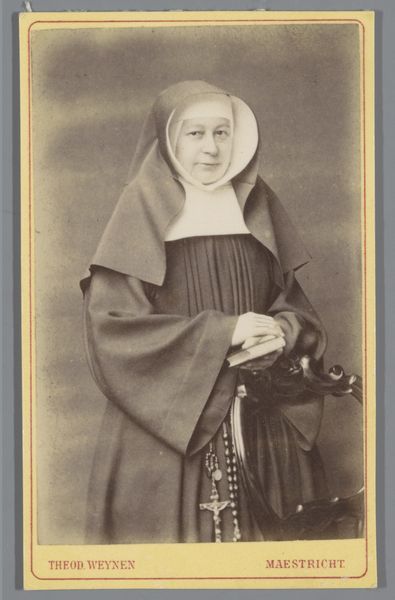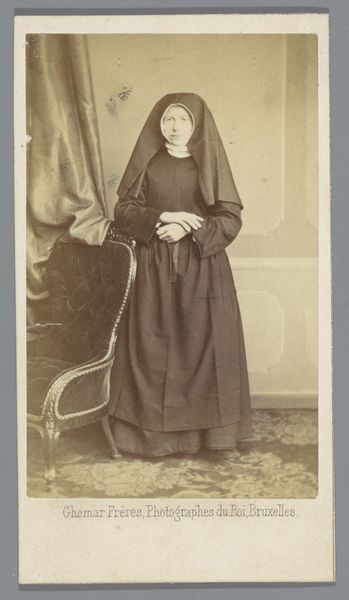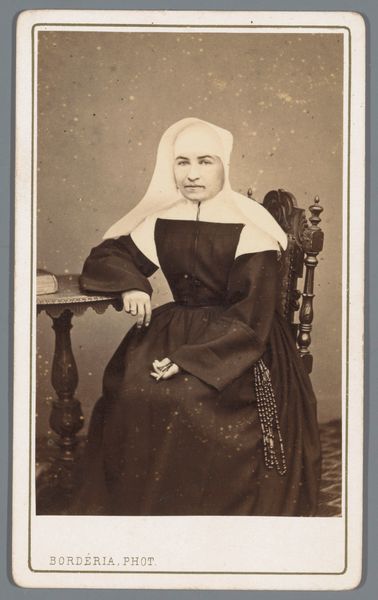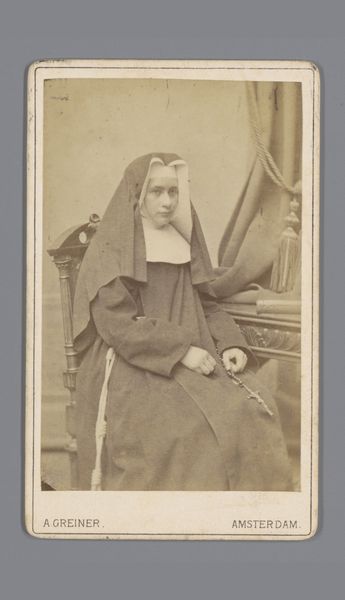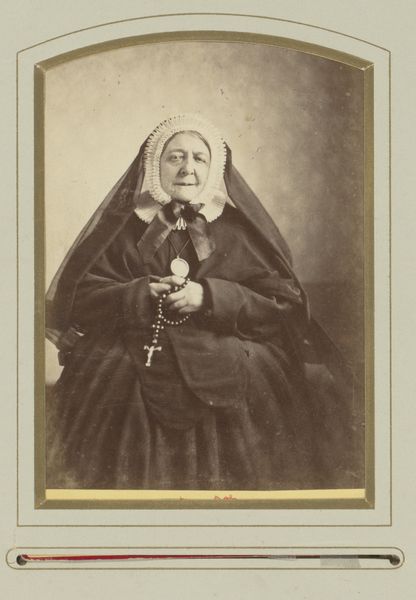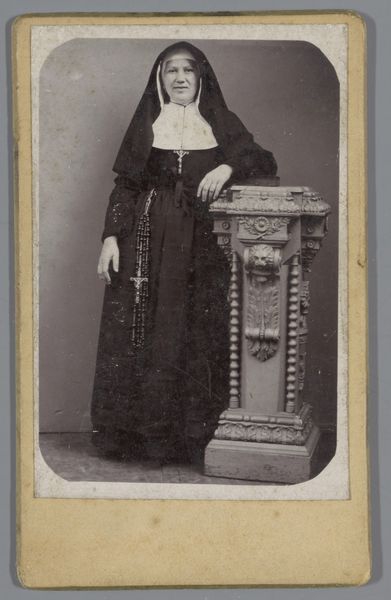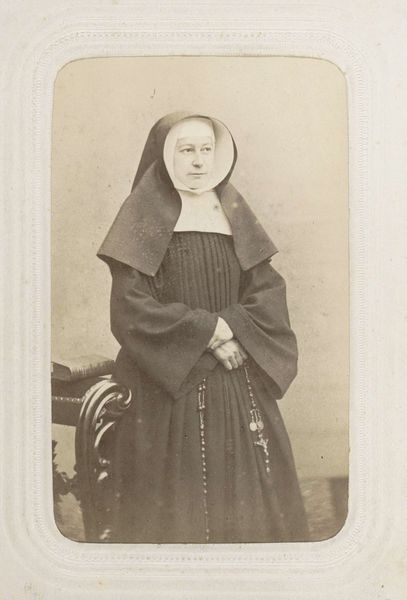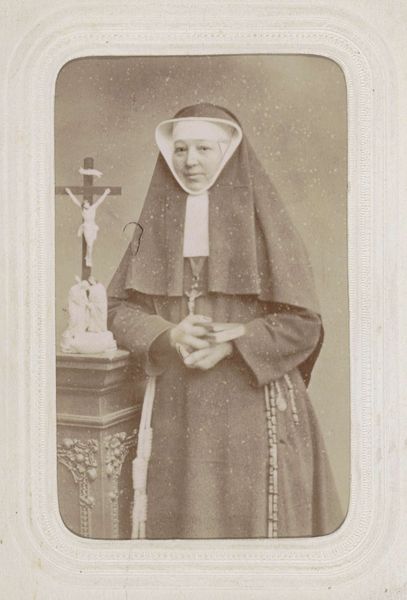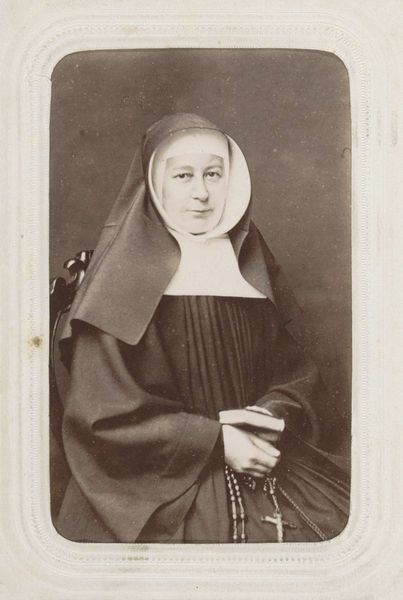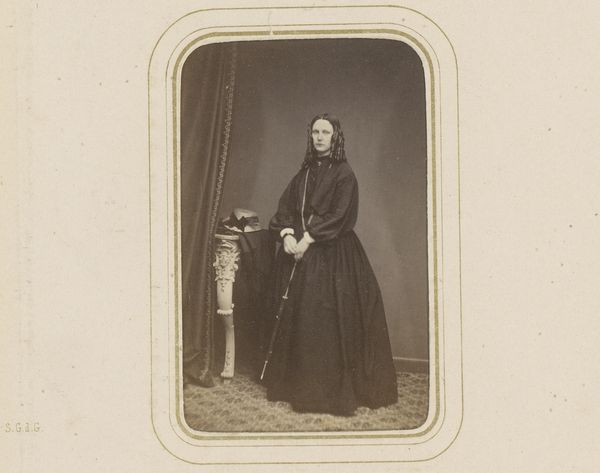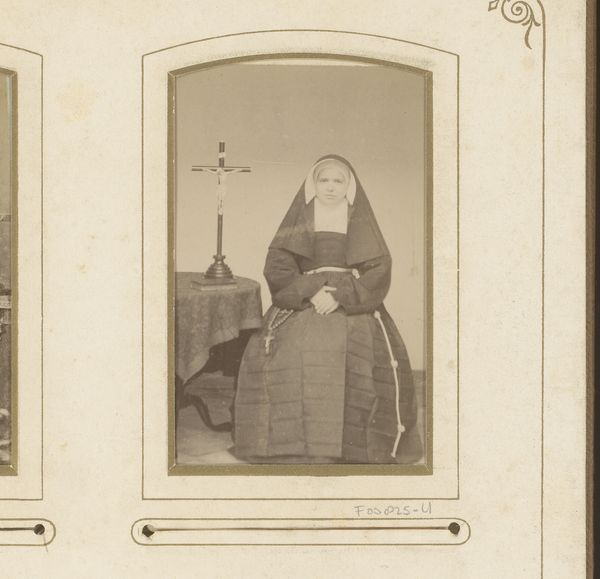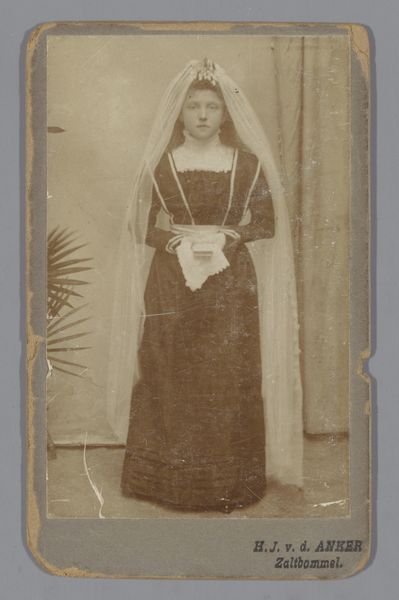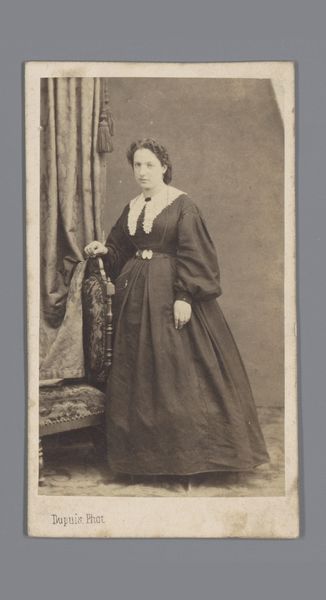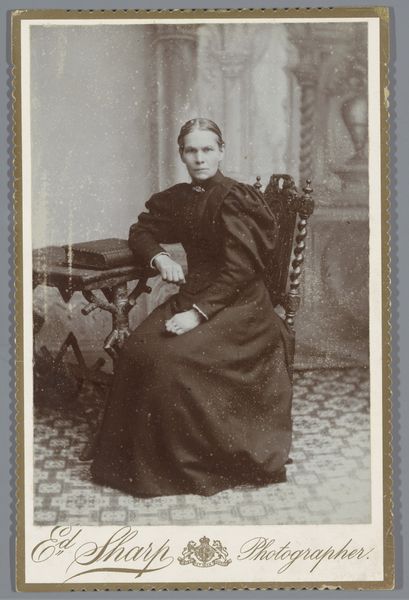
photography, gelatin-silver-print
#
portrait
#
photography
#
historical photography
#
gelatin-silver-print
#
19th century
#
genre-painting
Dimensions: height 138 mm, width 98 mm
Copyright: Rijks Museum: Open Domain
This photograph of a seated nun with a rosary in her hand was taken by Hilaire d' Argent. The photographic process, though now ubiquitous, was in its early days a complex interplay of chemistry and optics. Light-sensitive materials were carefully prepared and exposed, then developed through a series of chemical baths. Each step demanded precision, and the final print was the result of a delicate balance between science and craft. Consider how the tonal range is limited to sepia, giving a certain solemnity to the image. The photograph itself becomes a kind of artifact, a testament to the labor involved in its making. The rise of photography in the 19th century democratized portraiture, but it also created new industries and forms of labor. By understanding the materials and processes involved in creating this photograph, we can appreciate its cultural significance as more than just an image, but also as a material object embedded in a specific moment in history.
Comments
No comments
Be the first to comment and join the conversation on the ultimate creative platform.
